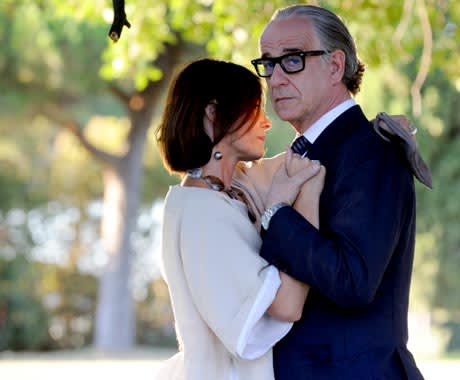Midway through Paolo Sorrentino's indulgent, devastating ode to Fellini, aging Roman playboy Jep Gambardella (a majestic Toni Servillo) gets into an argument with an old friend. She calls him a misogynist, and he demurs.
"A misanthrope! I'm a misanthrope," he corrects her, smiling charmingly, as carefree as you please. And we laugh, but only darkly, because we're beginning to get to know Jep Gambardella, and as much as we have come to respect his wit and intelligence, we pity his loneliness, his empty extravagances. He is, like the city he loves, at once full of possibility and past his prime.
With this exquisite and richly detailed film, Sorrentino (Il Divo, This Must Be The Place) has made his best movie yet. Like an 8 1/2 for the Berlusconi era, The Great Beauty tracks Jep as he wanders around his beloved Rome, roaming from party to party, from strip bar to classy restaurant, moving through lovers and past relics from Rome's forgotten glory, increasingly a man lost in a world he helped to build.
Jep has a sharp wit and an incisive critic's eye — his takedown of an absurdly overwrought performance art piece in the early going is viciously on-point — but he has long since ceased to be a producer of art. His one and only novel was written in his 20s and, despite its being widely revered, he has never managed another. Filling his creative void with booze, drugs, sex and the endless Roman night life, Jep has coasted for forty years.
Jep is, often, reduced to performing his own emotions, his own personality, and so, suggests Sorrentino, is Rome (and perhaps Italy) itself; this once great city (and nation) now hollowed out, aging, drifting, performing an increasingly inauthentic version of itself.
(Mongrel Media)"A misanthrope! I'm a misanthrope," he corrects her, smiling charmingly, as carefree as you please. And we laugh, but only darkly, because we're beginning to get to know Jep Gambardella, and as much as we have come to respect his wit and intelligence, we pity his loneliness, his empty extravagances. He is, like the city he loves, at once full of possibility and past his prime.
With this exquisite and richly detailed film, Sorrentino (Il Divo, This Must Be The Place) has made his best movie yet. Like an 8 1/2 for the Berlusconi era, The Great Beauty tracks Jep as he wanders around his beloved Rome, roaming from party to party, from strip bar to classy restaurant, moving through lovers and past relics from Rome's forgotten glory, increasingly a man lost in a world he helped to build.
Jep has a sharp wit and an incisive critic's eye — his takedown of an absurdly overwrought performance art piece in the early going is viciously on-point — but he has long since ceased to be a producer of art. His one and only novel was written in his 20s and, despite its being widely revered, he has never managed another. Filling his creative void with booze, drugs, sex and the endless Roman night life, Jep has coasted for forty years.
Jep is, often, reduced to performing his own emotions, his own personality, and so, suggests Sorrentino, is Rome (and perhaps Italy) itself; this once great city (and nation) now hollowed out, aging, drifting, performing an increasingly inauthentic version of itself.




